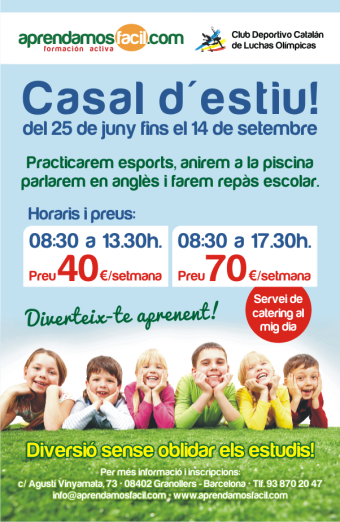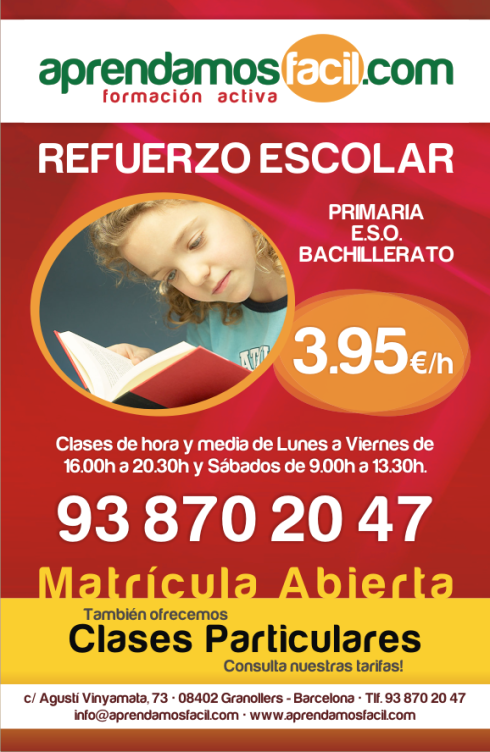AFTER Vs AFTERWARDS
AFTER Vs AFTERWARDS
:
AFTER Vs AFTERWARDS
AFTER introduces a subordinate clause. It makes no sense by itself:
If you say to somebody:
After we left the cinema
that person is still waiting for you to finish the sentence. And to finish the sentence you need to
put an independent clause. So you will perhaps say:
After we left the cinema WE WENT FOR A MEAL
That’s the sentence complete.
AFTERWARDS is an isolated adverb and doesn’t play a key part in grammar structure.
AFTERWARDS refers to an already spoken or understood action:
We left the cinema. AFTERWARDS we went for a meal
AFTERWARDS has the same meaning as LATER or SUBSEQUENTLY or THEN
The Exclamation Mark
The Exclamation
Mark
Use an exclamation point [ ! ] at the end of an emphatic declaration,
«No!» he yelled. «Do it now!»
An exclamation mark may be used to close questions that are meant to convey extreme emotion, as in
What on earth are you doing! Stop!
An exclamation mark can be inserted within parentheses to emphasize a word within a sentence.
We have some really(!) low-priced rugs on sale this week.
An exclamation mark will often accompany mimetically produced sounds, as in
«All night long, the dogs woof! in my neighbor’s yard» and
«The bear went Grr!, and I went left.»
If an exclamation mark is part of an italicized or underlined title, make sure that the exclamation mark is also italicized or underlined:
My favorite book is Oh, the Places You’ll Go!
(Do not add a period after such a sentence that ends with the title’s exclamation mark. The exclamation mark will also suffice to end the sentence.) If the exclamation mark is not part of a sentence-ending title, don’t italicize the exclamation mark:
I’ve asked you not to sing la Marseillaise!
In academic prose, an exclamation point is used rarely, if at all, and in newspaper writing the exclamation point is virtually nonexistent.
The Question Mark
A tag question is a device used to turn a statement into a question. It nearly always consists of a pronoun, a helping verb, and sometimes the word not. Although it begins as a statement, the tag question prevails when it comes to the end-mark: use a question mark. Notice that when the statement is positive, the tag question is expressed in the negative; when the statement is negative, the tag question is positive. (There are a few exceptions to this, frequently expressing an element of surprise or sarcasm: «So you’ve made your first million, have you?» «Oh, that’s your plan, is it?»)
He shouldn’t have quit his diet, should he?
They’re not doing very well, are they?
He finished on time, didn’t he?
She does a beautiful job, doesn’t she?
Harold may come along, mightn’t he?
There were too many people on the dock, weren’t there?
(Be careful of this last one; it’s not «weren’t they?»)
Be careful not to put a question mark at the end of an indirect question.
The instructor asked the students what they were doing.
I asked my sister if she had a date.
I wonder if Cheney will run for vice president again.
I wonder whether Cheney will run again.
Be careful to distinguish between an indirect question (above), and a question that is embedded within a statement which we do want to end with a question mark.
We can get to Boston quicker, can’t we, if we take the interstate?
His question was, can we end this statement with a question mark?
She ended her remarks with a resounding why not?
I wonder: will Cheney run for office again?
Put a question mark at the end of a sentence that is, in fact, a direct question. (Sometimes writers will simply forget.) Rhetorical questions (asked when an answer is not really expected), by the way, are questions and deserve to end with a question mark:
What if I said to you, «You’ve got a real problem here»? (Notice that the question mark here comes after the quotation mark and there is no period at the end of the statement.)
Sometimes a question will actually end with a series of brief questions. When that happens, especially when the brief questions are more or less follow-up questions to the main question, each of the little questions can begin with a lowercase letter and end with a question mark.
If a question mark is part of an italicized or underlined title, make sure that the question mark is also italicized:
(Do not add a period after such a sentence that ends with the title’s question mark. The question mark will also suffice to end the sentence.) If the question mark is not part of a sentence-ending title, don’t italicize the question mark:
When a question ends with an abbreviation, end the abbreviation with a period and then add the question mark.
Didn’t he use to live in Washington, D.C.?
When a question constitutes a polite request, it is usually not followed by a question mark. This becomes more true as the request becomes longer and more complex:
Colon Rules
Colon Rules
The following rules and examples will help you know when and where to use the colon as a punctuation mark.
- Use a colon to signal the reader that a series of words, phrases, or clauses follows a complete sentence.
The baseball coach claimed that the team’s success stemmed from four things: consistent hitting, solid pitching, good fielding, and excellent teamwork. The Greasy Spoon restaurant had several house specialties: a hot turkey sandwich, a roast pork dinner, a walleye platter, and a barbecued chicken wing basket.
- Use a colon to signal the reader that a second complete sentence explains a closely related preceding sentence.
The supervisor’s remark was straight to the point: I won’t tolerate workers who show up late. Religion and politics can be sensitive subjects: many people hold opinionated views and are easily offended by other peoples’ remarks.
- Use a colon to signal the reader that a name or description follows a complete sentence when you want to put a lot of emphasis on that item.
The local anglers had a nickname for the large muskie that had cruised the lake’s shoreline for years without being caught: Old Mossback. The preoccupied burglar didn’t notice who was standing right behind him: a smiling police officer.
- Use a colon to introduce a long quotation after a complete sentence.
In his book, Language is Sermonic, rhetorician Richard Weaver described how language may influence us: Sophistications of theory cannot obscure the truth that there are but three ways for language to affect us. It can move us toward what is good; it can move us toward what is evil; or it can, in hypothetical third place, fail to move us at all. (60)
- Colons are also used… …to separate titles and subtitles:
Richard Nixon: The Tarnished President
…to express time:
The accident occurred at approximately 1:45 p.m. on Tuesday.
…to cite a law or Biblical passage:
According to Minnesota statute 1:49:002, it is unlawful to feed licorice or peanut butter to goats.
…to end a salutation:
Dear Rachel:
…to separate the place of publication and the publisher in a bibliographic entry:
West, Gerald. How to Write Best Sellers. New York: Henry
James Publishing, 1973.
prejudice
prejudices; prejudiced; prejudic·ing
▪ The incident prejudiced [=biased] consumers against the company.
2 formal : to have a harmful effect on (something, such as a legal case)
▪ The defense claims that the media coverage prejudiced the trial. [=damaged the trial so that the result of the trial is not valid]
retrieve
re·trieves; re·trieved; re·triev·ing
▪ Many archaeological relics were retrieved from the site. ▪ Police retrieved his stolen car.
b : to find and get (information) from a computer or disk
▪ You can quickly retrieve data/information. ▪ The files were retrieved from the computer. ▪ He was able to retrieve the document.
2 : to find and bring birds or animals that have been shot back to a hunter [no obj] ▪ The dog is learning how to retrieve. [+ obj] ▪ The dog has been trained to retrieve birds.
3 [+ obj] formal : to keep (something) from failing or becoming worse
▪ They were able to retrieve [=save] the situation. ▪ Can their relationship be retrieved? [=salvaged]
IRONY
plural iro·nies
▪ a writer known for her clever use of irony ▪ “What a beautiful view,” he said, his voice dripping withirony, as he looked out the window at the alley. ▪ She described her vacation with heavy irony as “an educational experience.” — compare sarcasm
2 : a situation that is strange or funny because things happen in a way that seems to be the opposite of what you expected [count] ▪ It was a tragic irony that he made himself sick by worrying so much about his health. ▪ The (awful/bitter) irony is that in trying to forget her, he thought of her even more. ▪ That’s just one of life’s little ironies. [noncount] ▪ The irony of the situation was apparent to everyone. ▪ He has a strong sense of irony.
NOUNS
|
NOUNS is the name of anything like the names of persons, things and animals
e.g ,
Names of persons : Mario , Maria , Laia, Antonio.
Names of things : Pencil, table, ruler
Names of animals : Dog, elephant, cat
The gender of the nouns are two : SINGULAR and PLURAL
– Pencil ( singular )
– Pencils ( Plural
Most nouns form their plural by adding an “ S “ to the singular
Pencil —– pencils
|
verb ends in y
|
However, when a verb ends in y immediately preceded by a vowel, the y is not changed before the ending s is added. In each of the following examples, the vowel immediately preceding the final y is underlined.
|
THE PRESENT PARTICIPLE
|
THE PRESENT PARTICIPLE
The present participle of all the verbs is formed by adding ( ING ) TO the root of the
verb. E.g
To read —— reading to speak —— speaking
To study —— studying to listen —— listening
To say —– saying to run — running
To look —– looking to give —— giving
Also, we place before the present participle ( ING ) the verb to Be.
The function of the present participle in this case is as a GERUND.
|



















